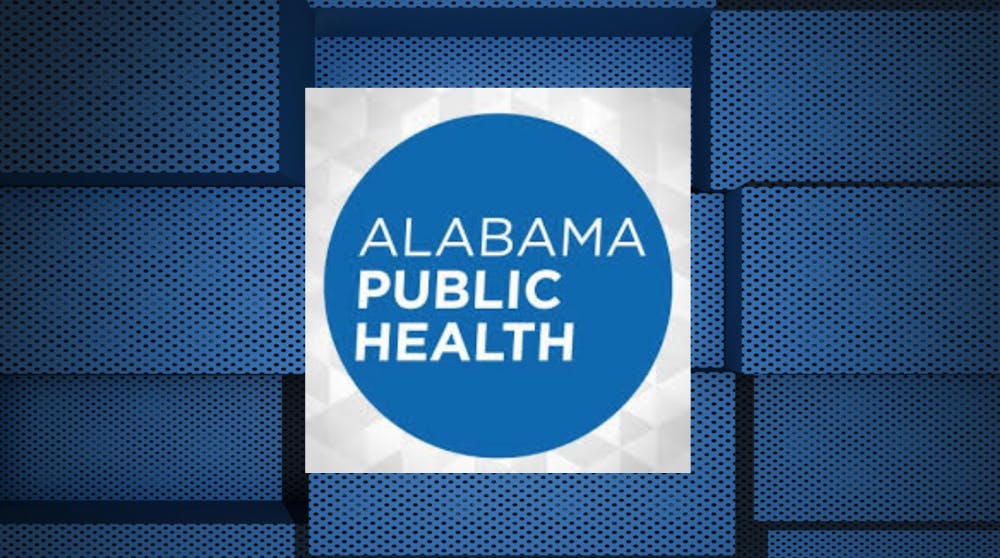MONTGOMERY, Ala. (EETV)- The Alabama Department of Public Health is sending out a few reminders of how to be prepared ahead of the expected landfall of Subtropical Storm Alberto.
Officials say that power and water supplies may be cut off after a storm so it is important to always have an emergency water supply, emergency food and medicine on hand, and to gather safety and personal items in advance. Safety items include a first aid kit, battery-powered radio, flashlights, extra batteries, and sleeping bags or extra bedding. Residents also need to be prepared for what they may face in the days following the storm.
Flooding
If an area floods, residents served by municipal water supplies should check with local officials concerning safety of the water. In general, if water pressure was not lost and normal operations were maintained, municipal water supplies should be safe.
Floodwaters may contain many forms of pollutants and harmful elements. Contact with these waters should be avoided at all times. Safe sanitation procedures such as hand washing and the thorough washing and cooking of any foods that have been in contact with floodwaters is advised.
Boiling Contaminated Water
Consuming contaminated water can cause health effects ranging from minor physical impact to severe illness or even death. To ensure harmful bacteria and other microbes are destroyed, all tap water within the flooded area used for drinking, food preparation and making ice should be boiled prior to consumption. The water should be brought to a vigorous rolling boil and then boiled for one minute.
In lieu of boiling, purchase bottled water or obtain water from some other suitable source, such as a separate water reservoir or other treatment device cleared for marketing by the Food and Drug Administration. Once analysis has been conducted on submitted water samples, and an evaluation has been determined about the water quality, updated information will be provided to the public. Authorities will announce when the boil water advisory has been lifted.
Septic Systems
During heavy rains and floods, the ground can become saturated, preventing proper operation of the system. For example, a septic tank can collapse or float out of position. Signs that a septic system is not working properly include sinks and toilets that drain slowly, floor drains that overflow, and visible sewage outside the home.
Consider having your septic tank pumped out. This may provide temporary relief and may help with maintenance for long-term system performance. ADPH recommends having your septic tank pumped out every three to five years to eliminate sludge build-up.
After weather conditions improve, the system should return to normal functioning. If you continue to experience problems with your system, contact your local health department environmentalist for assistance.
Mold
After natural disasters such as storms and floods, excess moisture and standing water contribute to the growth of mold in homes and other buildings. When returning to a home that has been flooded, be aware that mold may be present and may be a health risk for your family.
Carbon Monoxide
The public should never use generators, grills, camp stoves or other gasoline, propane, natural gas, or charcoal-burning devices inside a home, basement, garage or camper--or even outside near an open window. Keep these devices at least 20 feet away from any door, window or vent and use a battery-operated or battery back-up carbon monoxide (CO) detector any time you use one of these devices.
Food Safety
Power outages associated with storm force winds can cause concerns about the safety of frozen and refrigerated foods. As a rule, a full upright or chest freezer will keep foods frozen for about two days without power.
Animals
Stray animals can pose a danger after a damaging storm. Most animals are disoriented and displaced, so do not corner an animal. Certain animals may carry rabies; therefore, take care to avoid contact with strays. Although rabies is rare, it may be transmitted in Alabama by foxes, bats, raccoons or rarely other animals. If an animal bites you, seek immediate medical attention as soon as possible. If an animal must be removed, contact your local animal control authorities. Also, be on guard against snakes, which may be common in some flooded areas. Anyone bitten by a snake should seek prompt medical attention.
Mosquito Bites
Caution is needed to protect against mosquito-borne illnesses during the recovery phase after a storm. Massive amounts of rainfall from a tropical storm system may create an environment for mosquito populations to flourish; thereby posing a risk to those who are working outdoors during the recovery phase. Mosquitoes can transmit viruses such as West Nile and Eastern Equine Encephalitis that can infect people. When going outdoors, use EPA-registered repellents containing 20 percent DEET on skin or permethrin on clothes. Follow label instructions carefully when using any repellent. Repellents should not be used on infants less than 2 months old. Also, be aware of floating balls of fire ants that are often common in flooded areas. When working in floodwaters, dress appropriately; rubber boots, rain gear and cuffed gloves can help prevent ants from reaching the skin.
Injury Prevention
If power lines are lying on the ground or dangling near the ground, do not touch the lines. Notify your utility company as soon as possible that lines have been damaged, or that the power lines are down, but do not attempt to move or repair the power lines.
Avoid driving through standing water if downed power lines are in the water. If a power line falls across your vehicle while you are driving, continue to drive away from the line. If the engine stalls, do not turn off the ignition. Stay in your vehicle and wait for emergency personnel. Do not allow anyone other than emergency personnel to approach your vehicle.
Heat-related Illness
Individuals with heart disease, diabetes, obesity, poor circulation, or previous stroke problems, people of older and younger ages, and those taking certain medications are at greater risk of becoming ill in hot weather. Heat-related illnesses occur when the body is exposed to high temperatures. The most common heat-related illnesses are as follows:
In general, drink plenty of fluids except alcohol or caffeinated beverages to prevent dehydration, stay in an air-conditioned room, keep out of the sun by seeking shelter, wear a wide-brimmed hat, light-colored and loose-fitting clothing, and use sunscreen of SPF 15 or higher, take cool showers or baths, and reduce or eliminate strenuous activities during the hottest times of the day.







